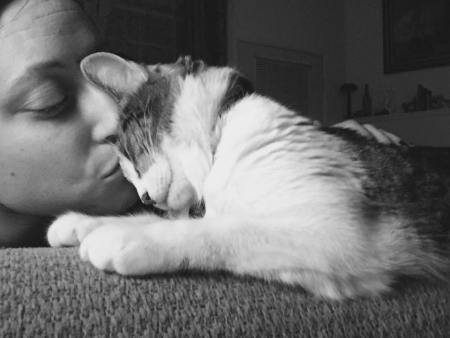“I don’t know” is a truth, not a cop-out
This is my weekly conundrum when I meet with my small group for Bible study: do I ask the questions that I really want to ask, at the risk of derailing the discussion and starting a debate? Do I say what I really want to say, at the risk of accusations that I have “bad theology,” or that I lack faith?
It’s my willingness to ask the uncomfortable, and often unanswerable, questions that make me feel more at home among skeptics than with conservative Christians. I took the “Christian” identifier out of my Facebook “religious views” because I know that this term implies certain assumptions about me that just aren’t true. Beyond a shared love of God, I often feel that there’s not much I have in common with the tribe I’m supposed to belong to.
I’ve found that skeptics are more inclined to understand the hurt I’m still dealing with from my seminary fallout and borderline spiritually abusive college ministry. My skeptic friends are more inclined to appreciate my questioning of doctrines that are assumed to be “no brainers” in conservative, evangelical circles. There is no tension with them to be a committed Christ follower or a perpetual doubter, but not both. They understand that it’s possible to be both at the same time.
In Conservative Christendom, I’ve run into scorn for still piecing together a Jewish identity when I’m not “supposed” to seek an identity outside of Jesus. My band of loyal skeptics see no contradiction with my recent purchase of a book on secular Judaism – a concept I once considered heretical, back in my wannabe rabbi days – because one’s familial background can’t help but shape the person you become. Clearly, a spiritual Jewish identity is off the table, but a secular, cultural one beckons me with increasing fervency. It’s how I keep a sense of my father with me.
In Benefit of the Doubt, which I’m reading for the second time, Gregory Boyd writes, “If I am confident that God unconditionally loves me based on what he did for me on Calvary, then wouldn’t I be confident that his love for me does not increase or decrease based on how accurate or inaccurate my other beliefs are?” Those words help ease my fear that “being saved” = “being right.”
Of course, I can’t leave the above thoughts alone without mentioning that the idea of humans being so depraved we essentially murdered God is another concept I struggle with, but it’s not a focus on depravity that gives life to my faith. It’s the knowledge that God suffers with us, and that suffering itself can be redemptive.
Beyond that, there’s not much else I’m certain about. If I had a quarter for every time I’ve been told, “You’re trying to evaluate God by your standards, not his,” and “God’s ways are higher than our ways,” I’d be a rich woman. The thing is, my “human standards” are all I have to work with. I believe that God gave me an inquisitive mind, and that it would be wasteful not to use it.
Therefore, it is one of my few steadfast beliefs that “I don’t know” is a truth, not a cop-out.

One more thing I’m certain about: the unconditional love of a kitty can also be a reflection of God.
Like this post? Check out Confessions of a Jew-ish Skeptic, now available on Amazon.
Stay in touch via Facebook and Twitter.
Filed under: Religion Tagged: Christian culture, Christianity, Controversy, evangelicals, Judaism, Seminary, Spiritual Abuse











